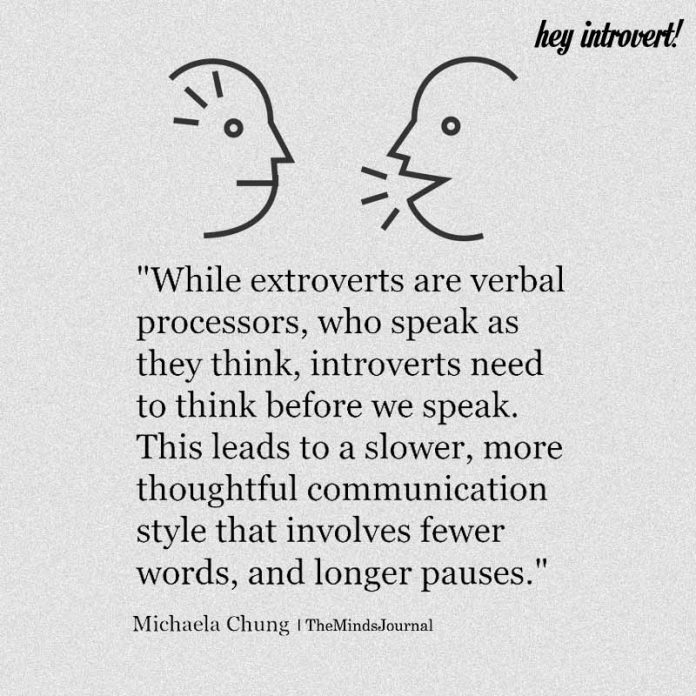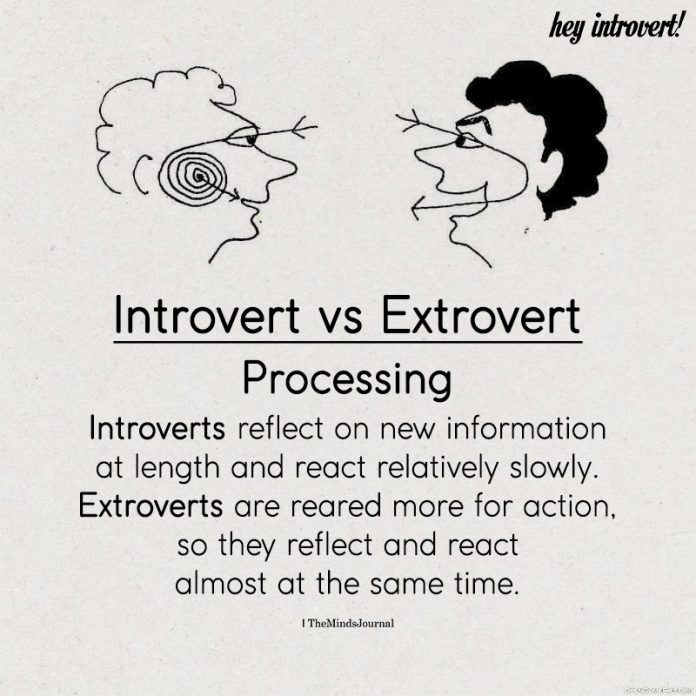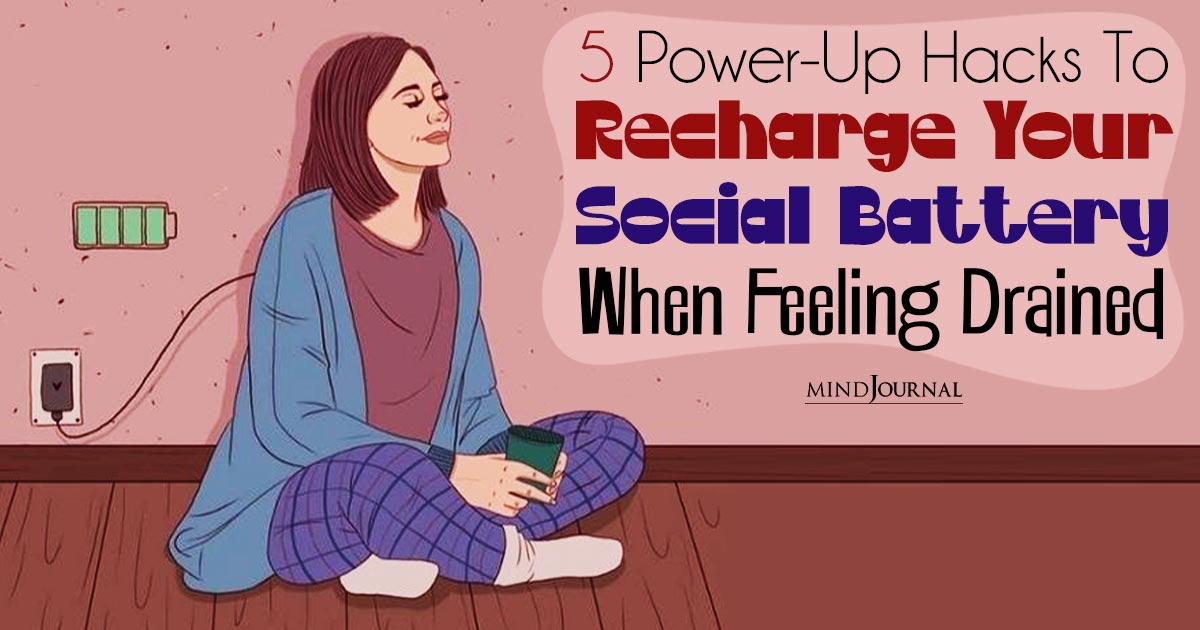Introverted Mind Takes Longer To Process Things
Do you overthink? Does it take longer for you to process things as an introvert? Research shows that the introverted brain processes stimuli much differently than extroverts.
Are introverts slow?
Have you ever been told that you’re too sensitive? Or not to take everything so seriously? Let me tell you that it’s okay to be sensitive. To have a slower pace in life. To take a little more time to look into the details. To stay with something until you have figured it out. Because all that time you take to process everything as an introverted person will help you transform yourself as a human being. When you feel deeply, you become more compassionate and empathetic.

Taking time to process things enables introverts to integrate, engage and connect more deeply. It allows us to be more mindful and be present. Being slow allows space for more intimacy. It enriches and deepens our experience of everything.
Read also: 7 Paradoxes of Being An Introvert
The complex introverted mind
A study conducted in 2008 and published in the Journal of Motor Behavior revealed that introverts do take longer time to process stimuli and information when compared to extroverts. Dr. Jennifer Kahnweiler, author of The Introverted Leader: Building on Your Quiet Strength believes this happens as introverts process stimulation in a more thoughtful way. Introverts love taking more time to completely understand the idea they are working with before jumping on to the next one.
Moreover, a 2012 study, published in the Journal of Neuroscience, revealed that introverts tend to have thicker and bigger gray matter present in the prefrontal cortex, a cerebral cortex which covers the front part of the brain’s frontal lobe. This area of the brain is linked with philosophical thought, emotion regulation and making decisions. Compared to introverts, extroverts have thinner and smaller gray matter. This exhibits that as introverted people, we invest a higher volume of neural resources to deeper thought which is why we take more time to process information.
Read also: 8 Biggest Downsides of Being an Introvert in a Extroverted World
Introverts are wired differently
The Happyologist Susanna Newsonen, MAPP explains “According to neuroscientists, we actually have a more complex brain and hence take longer to process things.” This enables us to process everything with exceptional depth, emotionally, critically and analytically. Susanna, who is a happiness life coach, adds “This makes us great reflectors and it also makes it easier for us to know what makes us fulfilled and hence building a life according to that.” Our ability to process things slowly helps us be a deep thinker.
Extroverts tend to have a shorter pathway in the brain to process stimulation. Hence, an extrovert’s brain can process visual and auditory sensations, along with taste and touch much faster. However, the introverted brain has a long complicated pathway which is why stimulation moves through different areas of the brain to get processed. In a Psychology Today article, Susanna Newsonen writes “You have a more complex brain with longer neural pathways for processing things. That means you dive deep into your emotions, thoughts, and experiences.” This makes us introverts experience things in a stronger, more powerful way. Hence, we can reflect on certain thoughts and experiences in a more philosophical perspective. Susanna adds “All of this will help you to make deeply thought-out decisions, as well as fuel your fulfillment in life.”

According to author, comedian & entrepreneur Michaela Chung, introverts process information in a certain way and this is why introverts require more time to think before they start talking. Michaela writes “we speak more slowly than our extroverted counterparts. We might also execute other tasks more slowly. We’re not innate multitaskers. Instead, we prefer to tackle one task at a time, in a slow, but focused manner.”
Read also: Ways Introverts Interact Differently With The World
Can it prevent you from succeeding?
In this fast-moving world, when we are constantly bombarded with information and messages, presenting your ideas faster is crucial for standing out. So can this tendency of introverts to slow down and process everything in detail be a disadvantage? Michaela believes not. She writes “Speaking slowly can make you appear more confident and intelligent. It also gives people time to absorb what you are saying.” Working slowly can also have certain advantages for introverted individuals while the extroverts speed through projects.
Author of The Happiness Project, Gretchen Rubin, says “We tend to overestimate what we can do in a short period, and underestimate what we can do over a long period, provided we work slowly and consistently.” This simply means that taking your time can enable introverts to work consistently in the long run and get more things done with accuracy and effectiveness. Consistency is the secret to long-term success.
In a TIME magazine article, Beth Buelow, author of The Introvert Entrepreneur: Amplify Your Strengths and Create Success on Your Own Terms explains that introverts can achieve a lot more and be more successful “if they hone their natural strengths.” She adds “It’s not about becoming a fake extrovert. It’s really about acknowledging the valuable traits that introverts bring.”
Read also: 9 Reasons Why Introverts Make Great Leaders, According To Science
Slow doesn’t mean stupid

“Being an introvert isn’t about being a weird hermit or even being shy or fragile any more than being slow is about being unintelligent or developmentally challenged,” writes author Natalie Peatfield. Our tendency to take time to process things and having a slow response time often creates the false illusion that slow means stupid. Although that can be highly frustrating, it is far from the truth. Michaela Chung explains “It never feels good to know that someone is underestimating your intelligence.” She adds “I know I’m not a dummy just because I can’t come up with long-winded answers to random questions off the top of my head.”
Introverts are bad at making small talk. And perhaps this is the reason why we often take longer than usual to respond. We just don’t know what to say that will satisfy the listener. However, when it comes to topics we are interested in, an introverted person can talk with passion and at length. Taking your time to respond or understand something is not a reflection of your intelligence and despite how others may feel about it, you don’t need to prove anything.
Michaela writes “Don’t try to prove yourself. You’re above that. If you constantly feel the need to prove yourself – whether at work, in a relationship, or with friends – it’s a bad sign.” We all shine in our own way and if someone is too blind to see your light, then it’s not your job to open their eyes. “Don’t feel bad about your need to slow down and think before you speak,” or act, she says.
Read also: How Mindfulness Works For Introverts
Embrace your inner introvert

Being an introvert can have several advantages that are often ignored. “Introverts tend to be better problem solvers, perform better academically, exhibit stronger regulation of their behavior, and are less likely to take risks that may cause them harm,” says positive psychology coach Derrick Carpenter. And all of these advantages are likely the result of having thicker gray matter in their prefrontal cortex.
Enjoying solitude, contemplating and reflecting on the purpose and meaning of life is considered crucial for happiness by philosophers like Aristotle and the Buddha. When you accept and embrace your inner introverted self, you can truly enjoy the inherent happiness that comes from being genuine and living life every moment.
Read also: Being An Introvert: Why You Shouldn’t Try To Change Yourself
Here is an interesting video that you may find helpful:










Leave a Reply